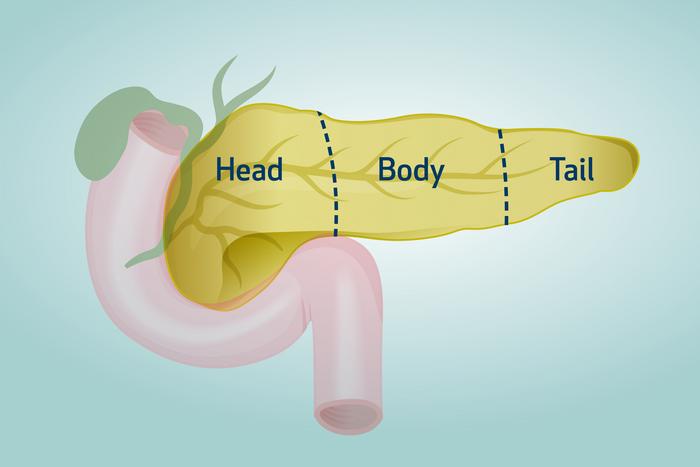History of Infertility Increases Cardiovascular Disease Risk in Women Following Assisted Reproduction
Women experiencing infertility face a significantly heightened risk of developing cardiovascular diseases later in life, according to groundbreaking research presented at the upcoming Joint Congress of the European Society of Paediatric Endocrinology (ESPE) and the European Society of Endocrinology (ESE) in Copenhagen, Denmark, slated for 10-13 May 2025. This extensive meta-analysis, conducted by Greek scientists […]


Women experiencing infertility face a significantly heightened risk of developing cardiovascular diseases later in life, according to groundbreaking research presented at the upcoming Joint Congress of the European Society of Paediatric Endocrinology (ESPE) and the European Society of Endocrinology (ESE) in Copenhagen, Denmark, slated for 10-13 May 2025. This extensive meta-analysis, conducted by Greek scientists at the National and Kapodistrian University of Athens, provides one of the most comprehensive evaluations to date linking female infertility with long-term heart and vascular health risks, underscoring infertility as a potential early biomarker for cardiovascular morbidity.
Infertility, defined as the inability to conceive after 12 months of regular unprotected sexual intercourse, affects approximately one in six individuals globally during their reproductive years. Treatment of infertility frequently involves advanced reproductive technologies such as in vitro fertilization (IVF) and assisted reproductive technologies (ART), which have revolutionized reproductive medicine but whose long-term cardiovascular implications remain incompletely understood. Previous reports investigating the cardiovascular risks associated with infertility have yielded inconsistent findings, creating an urgent need for a large-scale review integrating diverse high-quality data.
The research team systematically examined 21 peer-reviewed studies encompassing an unprecedented sample of more than 3.5 million women, including 178,828 women with documented infertility and a control group of over 3.39 million women without fertility issues. Utilizing rigorous meta-analytic techniques, the researchers identified a 14% relative increase in the risk of cardiovascular diseases—encompassing coronary artery disease, heart failure, and cerebrovascular events—among women with infertility histories. More specifically, they found a 17% elevated risk of heart disease and a 16% increased risk of stroke compared to their fertile counterparts, illustrating the profound impact of reproductive health on cardiovascular outcomes.
Intriguingly, the data indicated that younger women with infertility, particularly those under the age of 40, face an even steeper 20% increased risk of cardiovascular disease. This finding suggests that infertility may not only be a risk factor but also a potential early warning sign for cardiovascular dysfunction, enabling earlier intervention and closer clinical monitoring. Further, women undergoing ART treatments showed a modest but statistically significant 4% increase in cardiovascular disease risk, prompting critical questions about the long-term safety and physiological effects of fertility interventions on vascular health.
Dr. Elena Armeni, the lead investigator, noted that this study represents the largest and most methodologically robust meta-analysis examining the interface between infertility and subsequent cardiovascular risk. “By aggregating data across numerous international cohorts and applying stringent quality criteria, we have clarified the landscape and provided a compelling case for incorporating infertility into cardiovascular risk assessments for women,” she emphasized. The analysis also included sensitivity checks and stratification based on study design and participant age to ensure the validity and reliability of findings.
The pathophysiological mechanisms linking infertility to cardiovascular disease are multifaceted and remain an active area of research. It is hypothesized that underlying etiologies of infertility, such as polycystic ovary syndrome (PCOS), premature ovarian insufficiency, and hormonal imbalances, may contribute to systemic inflammation, endothelial dysfunction, insulin resistance, and dyslipidemia—well-known precursors of cardiovascular disease. Additionally, repeated ART cycles and exposure to high hormone levels could potentially affect vascular integrity, though further mechanistic studies are warranted.
Clinically, these findings advocate for a paradigm shift in women’s health, wherein reproductive history is integrated into cardiovascular risk stratification frameworks. Early identification of at-risk women could facilitate personalized preventive strategies, including lifestyle modification, pharmacological intervention, and more frequent cardiovascular surveillance. This is particularly crucial for younger women who might otherwise be underestimated in traditional risk calculators dominated by age and established cardiovascular risk factors.
The research team has delineated future investigative priorities, including prospective longitudinal cohort studies designed to dissect causal pathways and delineate the impact of specific infertility etiologies and fertility treatments on cardiovascular endpoints. Advanced biomarkers and imaging modalities will play a pivotal role in unraveling the biological intermediates linking reproductive dysfunction to vascular disease progression. Such studies will also aim to identify subpopulations most vulnerable to adverse outcomes, thereby refining risk prediction models.
Moreover, understanding the interplay between infertility and cardiovascular health has implications beyond clinical practice; it informs public health strategies and resource allocation in reproductive and cardiovascular care sectors. Raising awareness among healthcare providers and patients about the cardiovascular sequelae of infertility can foster earlier lifestyle interventions and adherence to monitoring regimens, potentially mitigating the lifelong burden of heart disease and stroke in this demographic.
Dr. Armeni and colleagues caution that while the meta-analysis mitigated earlier confounding and methodological limitations by restricting analyses to high-quality studies, inherent biases and heterogeneity in infertility definitions and cardiovascular endpoints across studies remain challenges. Thus, standardized diagnostic criteria and outcome measures are essential in future research to harmonize data and enhance comparability.
This pioneering work also opens avenues for exploring therapeutic implications, such as whether cardioprotective agents or tailored ART protocols can minimize cardiovascular risk without compromising fertility outcomes. It invites multidisciplinary collaboration among endocrinologists, cardiologists, reproductive specialists, and epidemiologists to holistically approach women’s health and optimize care trajectories.
In summary, the substantial aggregation of global evidence presented by Dr. Armeni’s team fundamentally shifts our understanding of female infertility from a reproductive concern alone to a salient cardiovascular risk factor with significant health implications. This underscores the critical need to integrate reproductive history in cardiovascular risk assessment paradigms and to unravel the complex biological links between fertility and vascular health so that preventive and therapeutic strategies can be effectively targeted.
Subject of Research: Female infertility and its association with long-term cardiovascular disease risk.
Article Title: Not provided.
News Publication Date: Not provided.
Web References: Not provided.
References: Not provided.
Image Credits: European Society of Endocrinology.
Keywords: Infertility, Reproductive disorders, Endocrinology, Hormones, Cardiovascular disease, Heart disease, Human reproduction, In vitro fertilization, Assisted reproductive technology, Metaanalysis, Laboratory procedures, Human fertilization.
Tags: advancing reproductive technologies impactsassisted reproduction and heart healthcomprehensive evaluation of infertility risksEuropean Society of Endocrinology researchfemale infertility studies meta-analysisinfertility and cardiovascular disease riskinfertility as cardiovascular biomarkerinfertility treatment long-term implicationsIVF and cardiovascular morbiditylong-term health effects of infertilityreproductive health and vascular riskwomen’s health and infertility
What's Your Reaction?

































